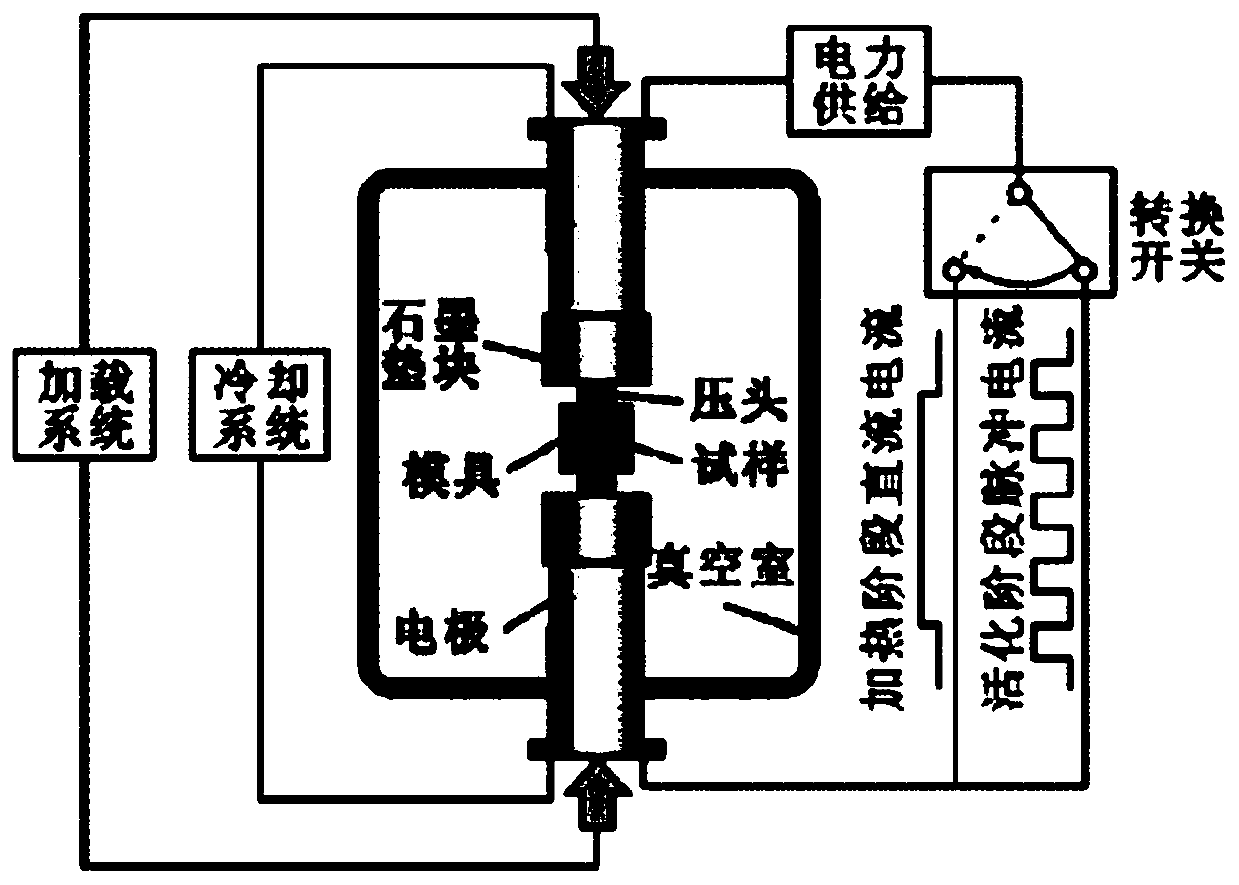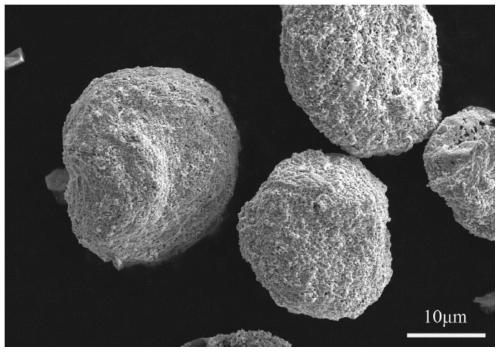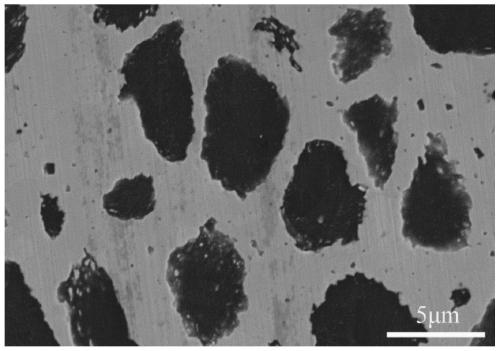Silicon carbide reinforced carbon matrix composite material and preparation method
A carbon-based composite material and composite material technology, applied in the field of silicon carbide reinforced carbon-based composite materials and its preparation, can solve the problems of low mechanical properties, poor oxidation and ablation resistance, etc., to reduce sintering temperature and enhance mechanical strength Effect
- Summary
- Abstract
- Description
- Claims
- Application Information
AI Technical Summary
Problems solved by technology
Method used
Image
Examples
Embodiment 1
[0035]Weigh silicon powder and mesophase carbon microspheres with a molar ratio of 1:50 as the raw material powder, and take 4:1 sodium chloride and sodium fluoride as the medium, according to the mass ratio of the raw material powder and the medium as 1:4, the powder Mechanically stir in an agate mortar for 20 min to mix well. Put the mixed powder into an alumina crucible, under vacuum or protective atmosphere, raise the temperature of the mixed powder to 600°C at a rate of 10°C / min, keep it warm for 30 minutes; then raise the temperature to 1100°C at a rate of 5°C / min , keep warm for 1 hour, rinse with hot water at 80-100°C for 50-70 times, and dry to obtain silicon carbide-coated mesophase carbon microsphere powder. Take part of the composite powder and put it into a graphite mold. The upper and lower indenters and the inner wall of the mold are pre-laid with a layer of graphite paper, which is pre-pressed and formed into a sample, and then the graphite mold is placed in t...
Embodiment 2
[0039] The process of this example is the same as that of Example 1, except that some process parameters are changed: the molar ratio of silicon powder and mesocarbon microspheres is 1:20, the mass ratio of raw material powder and medium is 1:12, and the sintering temperature is 1800°C .
[0040] The same performance test as in Example 1 is carried out on the sintered sample of this embodiment, and the results are as follows: the density reaches 2.78g / cm 3 , the relative density reaches 97.15%, and the apparent porosity is 1.78%. Form a three-dimensional network ceramic skeleton and image 3 Similar; microstructure and figure 2 Similar; the flexural strength of the composite material reaches 298MPa, and the thermal conductivity reaches 125W / (m·K).
Embodiment 3
[0042] The process of this embodiment is the same as that of Example 2, except that some process parameters are changed: the reaction temperature under vacuum atmosphere is 1400° C., the holding time is 10 h, and the pressure applied to the graphite mold during the sintering process is 60 MPa.
[0043] The same performance test as in Example 1 was carried out on the sintered sample of this embodiment, and the results are as follows: the density reaches 2.85g / cm3, the relative density reaches 97.99%, and the apparent porosity is 1.01%. Form a three-dimensional network ceramic skeleton and image 3 Similar; microstructure and figure 2 Similar; the flexural strength of the composite material is 311MPa, and the thermal conductivity reaches 163W / (m·K).
PUM
| Property | Measurement | Unit |
|---|---|---|
| Density | aaaaa | aaaaa |
| Bending strength | aaaaa | aaaaa |
| Thermal conductivity | aaaaa | aaaaa |
Abstract
Description
Claims
Application Information
 Login to View More
Login to View More - R&D
- Intellectual Property
- Life Sciences
- Materials
- Tech Scout
- Unparalleled Data Quality
- Higher Quality Content
- 60% Fewer Hallucinations
Browse by: Latest US Patents, China's latest patents, Technical Efficacy Thesaurus, Application Domain, Technology Topic, Popular Technical Reports.
© 2025 PatSnap. All rights reserved.Legal|Privacy policy|Modern Slavery Act Transparency Statement|Sitemap|About US| Contact US: help@patsnap.com



